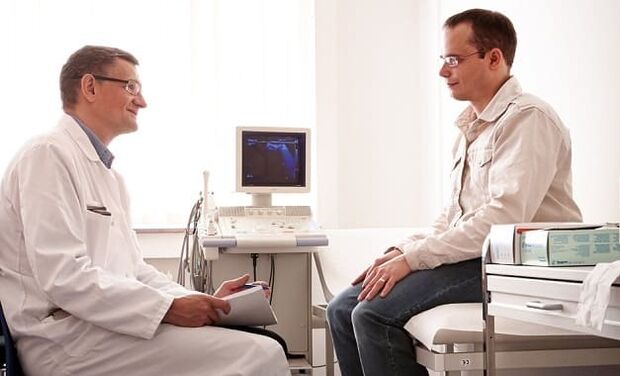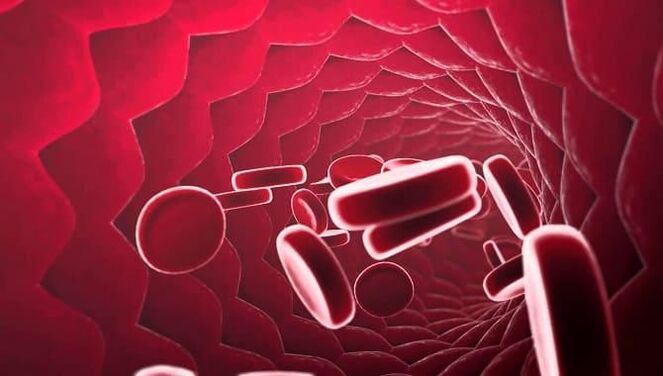Prostatitis is an inflammation of the prostate, accompanied by impaired sexual function, urination disorder.It is diagnosed on the basis of bakposev data of prostatic juice, clinical blood test and ultrasound of the pelvic organs.The tablets from prostatitis destroy the pathogenic flora in the prostate gland, restore the passage of urine and stop pain.Conservative therapy includes drugs of different actions - antibiotics, muscle relaxants, analgesics, and antipassia.
Complex approach to treatment
With uncomplicated prostatitis, they resort to conservative treatment.The basis of therapy is two types of drugs:
- Etiotropic (antibiotics, antiviral agents, antimicotics) - destroy the causative agent of infection;
- Symptomatic (non -narcotic analgesics, muscle relaxants, antihistamines) - stop symptoms or reduce their severity.
In the case of chronic inflammation, prostate massage and physiotherapeutic procedures are prescribed - laser therapy, magnetotherapy, transurethral microwave thermotherapy.
Types of drugs used
Tablets for prostatitis are prescribed by a doctor-Andrologist.With uncomplicated inflammation of the prostate gland, it is treated in an outpatient basis.Therapy includes drugs of several pharmacological groups:
- antibacterial;
- antispasmodic;
- painkillers;
- vasodilating;
- sedatives;
- Immunostimulating.
The choice of medicines is affected by the severity of the clinical picture, the type of pathogen, the presence of complications.With prostatitis against the background of urethritis or cystitis, Uroseptic is additionally used - antimicrobials that eliminate the infection in all parts of the urinary system.

Before prescribing the drugs, Andrologist conducts an examination, during which prostatitis is distinguished from diseases with similar symptoms - cancer of the neck of the bladder, adenoma and prostate carcinomas.
Antibiotics
In 8 out of 10 cases, inflammation of the gland is caused by pathogenic bacteria.Therefore, with prostatitis, antimicrobial drugs are prescribed in men.They prefer antibiotics that can penetrate into glandular tissues and create high concentrations in them.
Recommended medicines:
- macrolides;
- fluoroquinolones;
- Tetracyclines.
The first improvements are noticeable 2-3 days after the start of therapy.But in order to certainly destroy the pathogenic flora in the genitourinary system, antibiotics take at least 4 weeks in a row.
In chronic prostatitis, drugs are not prescribed that poorly accumulate in the tissues of the prostate gland.Therefore, aminoglycosides are never used for treatment.

The therapeutic effect of most antimicrobial drugs depends on the dosage.In the treatment of acute inflammation, it is very important to take tablets at a dose necessary for a bactericidal effect.
Anti -inflammatory and painkillers
Non -steroidal anti -inflammatory drugs (NSAIDs) are the best remedies for pain and inflammation in the genitourinary system.Most of the means of this group inhibit the production of a special enzyme (cyclooxygenase), which provokes inflammatory reactions.
Acute prostatitis provokes severe pain in the pelvic area and perineum.
Licking inflammation increases the risk of hyperplasia and prostate adenoma.Therefore, patients with chronic prostatitis are additionally prescribed drugs that prevent the growth of gland tissue.
Alpha-blockers
Prostatitis is accompanied by inflammation and an increase in the gland, due to which the urethra is compressed.As a result, urination disorders occur - slow and incomplete emptying of the bladder, pain.Alpha-blockers are used to restore the passage of urine.They relax smooth muscles, which expands the inner diameter of the urethra and neck of the bladder.

The drugs of this group expand venous and arterial vessels, lower blood pressure.
Alpha-blockers can be attributed to the group of correators of urodynamics.They do not eliminate the cause of the disease, but facilitate urination.The effect is noted 1-2 weeks after the start of therapy.
Sedatives
For treatment in men, prostatitis is often used sedatives.The disease negatively affects the quality of life, provoking urination problems, erectile dysfunction.This becomes the cause of neuropsychiatric disorders - emotional lability, depressive state, neurosis.
To improve the psycho -emotional state, drugs are used that:
- normalize the functioning of the nervous system;
- relieve irritability;
- improve sleep;
- Increase stress resistance.

Sedative drugs enhance the effect of antipsychotics and tranquilizers.Therefore, before taking pills, you need to consult a doctor.
Musorelaxants
With recurrent prostatitis, muscle relaxants are prescribed - drugs that have a relaxing effect on smooth muscles.They eliminate the tension of the bladder, urethral canal.To achieve the maximum relaxing effect, they are used in combination with NSAIDs.Musorelaxants reduce the concentration of non -narcotic analgesics, which prevents the irritation of the gastrointestinal mucosa.
Muscle Relaxant preparations are used exclusively with high muscle tone, spasm of the urinary ducts or bubbles.An overdose is fraught with nausea, muscle pain, inhibition of breathing.
Musorelaxants are contraindicated in an ulcer of a 12-first intestine, psychoses, epilepsy and Parkinson's disease.
Restoring blood flow
To cure the prostate, it is necessary to improve the blood supply to the pelvic organs.With blood flow, the organs receive nutrients, which stimulates metabolism and regeneration of damaged tissues.The systematic intake of drugs prevents congestion, edema edema and compression of the urethral canal.
For the treatment of the gland, medicines with the following properties are prescribed:
- vasodilating - increase the diameter of blood capillaries and blood flow to the pelvic organs;
- angioprotective - increase the density of vascular walls, prevent swelling;
- Antiplatelet - prevent platelet gluing.
Preparations to restore blood flow in the pelvis are used to treat men with sluggish prostatitis.
Medicines are used exclusively in complex therapy.To avoid irritation of the gastric mucosa, tablets are taken after eating.
Immunomodulators
It is recommended to treat prostatitis with medicines that stimulate the operation of the immune system.They increase resistance to infections, which reduces the likelihood of exacerbations.
Indications for the reception of immunomodulators:
- recurrent prostatitis;
- vitamin-mineral failure;
- secondary immunodeficiency;
- Chronic bacterial inflammation.

With premature refusal to treat the body's resistance, infections are reduced.Because of this, the likelihood of a relapse of prostatitis increases.
To achieve the desired therapeutic effect, immunomodulators are taken in courses for 2-8 weeks.
Phytotherapeutic drugs
Preparations based on components of plant and animal origin do not increase the drug on the body.They are well tolerated, do not provoke severe side effects.
Natural drugs are suitable for the treatment of prostatitis and other urological pathologies such as adenoma or gland hyperplasia.
Preparations based on medicinal herbs often provoke allergic reactions and urticaria.Therefore, with hypersensitivity to components, it is better not to be treated with phyto-means.
Vitamins
Vitamin-mineral deficiency is one of the most common causes of relapse of bacterial infection in the genitourinary system.To strengthen immunity, the lack of nutrients is replenished.Therefore, with prostatitis, vitaminized agents are prescribed.
Tablets with several bioactive components replenish vitamins.Due to this, metabolism is accelerated, cellular immunity is strengthened.
Polyvitamins are recommended to be taken for the prevention of exacerbations of prostatitis twice a year - in the fall and spring.They reduce the risk of hypovitaminosis, colds and metabolic disorders.
The danger of self -medication
Prostatitis is a urological disease that often goes into a chronic course.Therefore, it is strictly not recommended to take drugs without prescribing a doctor.Self -medication is fraught with disorders in the work of the urinary and reproductive system.Irrational therapy is dangerous:
- chronic prostatitis;
- erectile dysfunction;
- acute urinary retention;
- urolithiasis;
- infertility;
- Suppuration in the prostate;
- narrowing of the urethra.
Incorrectly selected antibiotics do not destroy the infection, which causes purulent inflammation of the gland.The abscess of the prostate is an indication for surgical intervention.
Prostatitis is a male disease, inflammation of the prostate gland.With timely and proper treatment, the therapy is good.But in the case of a transition to a chronic form, it often provokes complications.Therefore, at the first signs of prostatitis - difficulty urinating, pain in the perineum, blood in the urine - you need to contact a urologist or Andrologist.
























